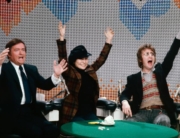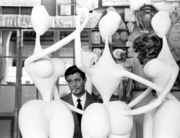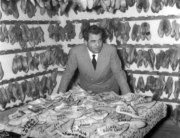Blubber. Forever. Deenie. Do any of these titles sound familiar? How about Tales of a Fourth-Grade Nothing? In the pre-internet world, books by Judy Blume were the motherlode teens and tweens ran to for answers to everyday questions—and deeper ones too. The best-selling author of 29 titles took criticism for her frank, groundbreaking descriptions of changing bodies and sexual awakening. But many of her early readers remember her just as much for capturing the feelings that overwhelm vulnerable young people: confusion, frustration, and a sense of being ignored. Often derided by adults, Blume was adored by the young.
Now two movies have come along to resurrect Blumemania: the sunny biography Judy Blume Forever and a heartfelt coming-of-age drama based on one of Blume’s books, Are You There, God? It’s Me, Margaret (opening April 28). Companion pieces to each other, these bittersweet, nostalgic films play like a warm hug. And also a red flag: At a time when states are banning books, Blume’s early bringing of taboo subjects into the open is a reminder that truth-telling is valuable and timeless.
Judy Blume Forever is conventionally made, but like its subject, bouncy and assured. Sassy, colorful graphics, and a burbling synth soundtrack add energy to the film, as does Blume’s perky, ageless presence (she was 83 on camera but looks much younger). The documentary also reveals some unexpected depths while telling Blume’s life story, which mirrors many women’s journeys of liberation and self-discovery that began in the 1960s.
Judy Sussman grew up under pressure to conform in suburban New Jersey, site of so many of her later mise-en-scènes. Photos show a pretty girl with an underlay of anxiety beneath the smiles (amusingly, the pictures also provide a fashion show of the Mad Men era through the hippie days to the present). After compulsory marriage and suburban motherhood, Judy felt moved to tell stories she knew were overlooked and began taking tentative steps toward forming an author’s voice.
There were a few stumbles, but the rest is history: Blume’s books and their frank tackling of young people’s problems became first big sellers, then touchstones of teenage life. Blume herself broke free of a stifling marriage and had some rough times on the way to a happier, more independent existence. Now she owns a bookstore in Key West, Florida, where strangers come in to gush that her books changed their lives.
Blume is a warm presence, but not one to be trifled with. Clips abound of the author politely but stoutly defending her work against detractors like Pat Buchanan. While providing a spotlight for her magnetism, the filmmakers generously (and shrewdly) let her share the stage with others—celebrities like Molly Ringwald and Lena Dunham reveal the impact of her books. Blume’s work tends to be girl-identified, so it comes as a surprise when men say they got a lot of confidence from her work too. Most moving is the testimony of Lorrie Kim, a young Korean American woman who wrote plaintive letters to Blume for years (that Blume kept and from which she reads aloud). When Kim graduated from college, Blume and her husband were there for the ceremony.
Judy Blume Forever is a testament to sticking to your voice, thinking empathetically of others, and keeping faith. Sometimes the narrative seems a little pat, the figure at the center a little too perfect. Does Judy Blume ever get mad? If she does, she keeps it to herself. Right now, her kindness, straightforwardness, and attention to the misunderstood add up to a worthy life’s work.

















Leave A Comment